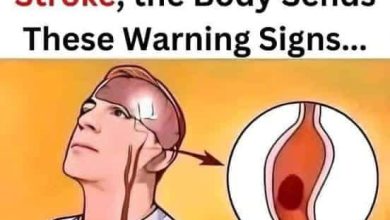Reasons You Could Have Numbness or Tingling Sensations in Your Hands

Have you ever woken up with a strange, prickly feeling in your hands, as if they’re full of “pins and needles”? This sensation is known as paresthesia, and it’s a very common experience. While it’s often harmless—like when you’ve slept on your arm the wrong way—it can sometimes point to a more significant health issue. Getting a better understanding of what causes hand numbness and tingling is the first step toward knowing when to seek help.
ADVERTISEMENT
Common Reasons for Hand Numbness
Hand numbness is a sensation that can feel abnormal or unsettling. It may be accompanied by tingling—commonly described as a “pins and needles” feeling. This symptom can result from various underlying conditions, ranging from harmless to serious.
ADVERTISEMENT
A very frequent cause is pressure on a nerve. This can happen in simple, everyday ways, such as:
ADVERTISEMENT
- Sleeping awkwardly: Your hand or arm might get compressed under your head or body for an extended period.
- Repetitive motions: Activities like typing, using a computer mouse, or performing certain jobs can put stress on the nerves in your wrist, leading to conditions like carpal tunnel syndrome.
- Leaning on your elbows for too long: This can compress the ulnar nerve, often referred to as the “funny bone” nerve, which runs through your elbow.
In some cases, growths or swellings might press on nerves, causing numbness. The nerve that runs from your neck down to your fingertips can be affected by an injury or condition at any point along its path. This includes:
- A pinched nerve in your neck: This can be caused by a herniated disc.
- Direct injury to the nerves in your hand or arm.
- Pressure from tumors, infections, or enlarged blood vessels.
There are also a number of medical conditions that can cause numbness or tingling in the hands. These conditions often affect the nervous system or blood flow and include:
- Diabetes: This condition can lead to nerve damage, a common complication called diabetic neuropathy.
- Migraine headaches: Numbness can sometimes be an aura symptom before or during a migraine.
- Multiple sclerosis (MS): This condition affects the central nervous system, and numbness is one of its common symptoms.
- Stroke: Sudden numbness on one side of the body can be a sign of a stroke and requires immediate medical attention.
- Shingles or herpes infections: These viral infections can affect nerves and cause pain and tingling.
- Raynaud’s syndrome: This condition causes blood vessels to narrow, leading to numbness and coldness, especially in the fingers and toes.
- Thyroid problems: An underactive thyroid can sometimes lead to swelling that puts pressure on nerves.
Less common, but still possible, causes include:
- Side effects of certain medications.
- Vitamin B12 deficiency: This vitamin is crucial for nerve health.
- Excessive alcohol consumption: This can lead to nerve damage over time.
- Imbalances in important minerals like calcium, potassium, or sodium.
- Lyme disease or other infections.
When to See a Doctor
While temporary hand numbness is often harmless, if it happens frequently or is accompanied by other symptoms, it’s important to get it checked out. A doctor will typically start by taking a detailed medical history and asking about any other symptoms you’re experiencing.
They may also suggest a variety of tests to help them figure out the cause. These tests might include:
- Blood tests to check for vitamin deficiencies, thyroid problems, or other medical conditions.
- Imaging tests like X-rays, CT scans, or MRIs to look for nerve compression or structural issues.
- Nerve function tests like an electromyography (EMG), which measures the electrical activity of your nerves and muscles.
Once the cause is diagnosed, treatment will be tailored specifically for you. It could involve simple changes like wearing hand splints or taking supplements, or it might require more specialized care like physical therapy, medication, or even surgery for severe cases like carpal tunnel syndrome.
Prevention and Self-Care
Taking care of your body can help prevent numbness and tingling. Here are a few simple tips:
- Take breaks: If you have a job that requires repetitive hand movements, take frequent breaks to stretch your hands and wrists.
- Manage your health: Keeping chronic conditions like diabetes or high blood pressure under control is crucial.
- Maintain a healthy lifestyle: A balanced diet and regular checkups can help ensure your body has the nutrients it needs to support healthy nerves.
The most important thing to remember is this: If the numbness lasts for more than a few hours or keeps returning, it’s wise to consult a healthcare provider. Seek immediate medical attention if the numbness is accompanied by:
- Numbness in other areas of your body.
- Confusion, dizziness, or slurred speech.
- Weakness or paralysis.
- Loss of bladder or bowel control.
- A skin rash.
It’s common to experience occasional hand numbness, especially after sleeping in one position too long. But if it becomes frequent or occurs with other symptoms, don’t ignore it. A medical provider can help identify the cause and recommend appropriate treatment.




